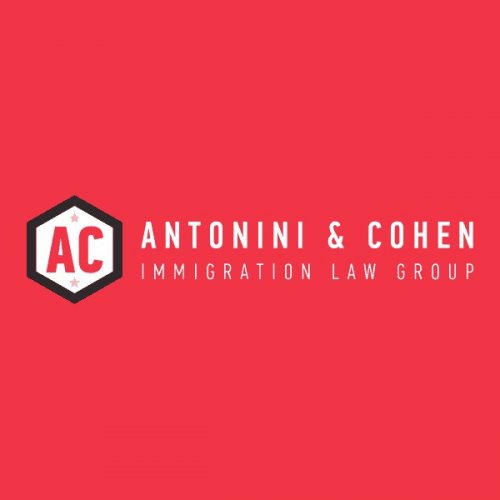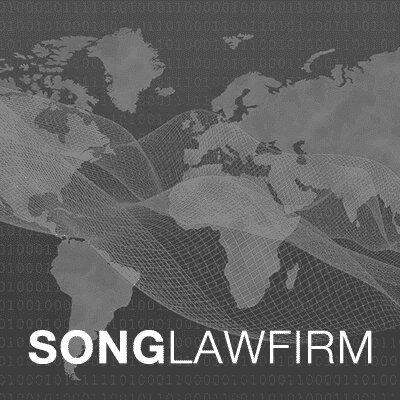Best Work Permit Lawyers in United States
Share your needs with us, get contacted by law firms.
Free. Takes 2 min.
Or refine your search by selecting a city:
List of the best lawyers in United States
About Work Permit Law in United States
In the United States, a work permit, often referred to as an Employment Authorization Document (EAD), is a significant component of immigration and work authorization law. It allows individuals who are not U.S. citizens or lawful permanent residents to legally work in the United States. The work permit is issued by the U.S. Citizenship and Immigration Services (USCIS) following a successful application and is typically valid for a specific period, which can be renewed. Work permits are commonly required for temporary workers, asylum seekers, students under the Optional Practical Training program, and others with specific non-immigrant statuses.
Why You May Need a Lawyer
There are several scenarios where individuals might require legal assistance concerning work permits in the United States:
Complex Applications: The application process for a work permit can be complex, particularly for those who fall into unique immigration categories or have specific legal circumstances.
Navigating Changes in Immigration Status: Individuals who experience changes in their immigration status may need legal advice to ensure compliance with work authorization regulations.
Understanding Eligibility: Determining eligibility for a work permit can be challenging without understanding the nuances of the law. A lawyer can provide clarity and guidance.
Appeals and Denials: If a work permit application is denied, legal counsel can assist in appealing the decision or in exploring alternative options.
Local Laws Overview
The following key aspects of local laws are relevant to obtaining and maintaining work permits in the United States:
Eligibility Criteria: Eligibility criteria vary but often include having a valid immigration status that allows for work permit requests, such as pending asylum applications, student status, or certain temporary worker categories.
Application Process: Applicants must file Form I-765, Application for Employment Authorization, along with the necessary supporting documents and fees to USCIS.
Validity and Renewal: Work permits are generally valid for one year and must be renewed prior to expiration, with certain conditions affecting the renewal process.
State-Specific Requirements: Some states may have additional documentation or verification processes, particularly concerning tax obligations or driver's licenses linked to work permit holders.
Frequently Asked Questions
What is a work permit and who needs one?
A work permit, or Employment Authorization Document (EAD), permits non-U.S. citizens to work legally in the U.S. Those eligible include individuals seeking asylum, students under OPT, certain family members of U.S. citizens or lawful residents, and others.
How do I apply for a work permit in the United States?
To apply for a work permit, you need to file Form I-765 with USCIS, along with supporting documentation and applicable fees. Legal advice may help ensure the correct category is applied for.
Can my employer apply for a work permit on my behalf?
No, individuals must apply for their work permits themselves. Employers may offer documentation or sponsorship for other work visas but do not directly apply for EADs.
What if my work permit expires while my renewal is pending?
If you renew on time, your work authorization often automatically extends for up to 180 days past the expiration date, depending on your category.
Are there any restrictions on the work I can do with a work permit?
Generally, an EAD allows you to work for any employer. However, certain EAD categories might have limitations on the type of work that can be performed.
What happens if my work permit application is denied?
If your application is denied, you will receive a notice explaining why. A lawyer can help determine your options, which may include reapplying or appealing the decision.
Can I expedite my work permit application?
In some cases, you can request expedited processing, but approval is subject to meeting specific criteria such as severe financial loss or emergencies.
Do I need a Social Security number to work with a permit?
Yes, you need a Social Security number to work. You can apply for one or request it simultaneously with your EAD application.
How long does it take to get a work permit?
Processing times vary, but it generally takes several months for the USCIS to process work permit applications.
What is the fee for applying for a work permit?
The application fee varies by category, but the standard fee is around $410. Biometric services may incur additional fees.
Additional Resources
Here are some resources that can provide assistance and information regarding work permits:
USCIS: The primary governmental body for immigration services, including work permits. Their website provides forms, fee structures, and detailed guidelines.
Legal Aid Societies: Organizations that provide free or low-cost legal services to eligible individuals.
Immigration Law Clinics: Typically associated with law schools, these clinics offer guided legal aid and may assist with documentation and applications.
Next Steps
If you determine that you need legal assistance regarding a work permit, consider the following steps:
Consult a Lawyer: Seek out an immigration lawyer who specializes in work permits and employment law to assess your specific situation.
Gather Documentation: Collect all necessary documentation related to your immigration status and eligibility for a work permit.
Review Legal Aid Resources: Investigate whether you qualify for free or low-cost legal assistance from nonprofit organizations or clinics in your area.
By understanding the legal landscape and preparing accordingly, you can navigate the work permit process with greater confidence and support.
Lawzana helps you find the best lawyers and law firms in United States through a curated and pre-screened list of qualified legal professionals. Our platform offers rankings and detailed profiles of attorneys and law firms, allowing you to compare based on practice areas, including Work Permit, experience, and client feedback.
Each profile includes a description of the firm's areas of practice, client reviews, team members and partners, year of establishment, spoken languages, office locations, contact information, social media presence, and any published articles or resources. Most firms on our platform speak English and are experienced in both local and international legal matters.
Get a quote from top-rated law firms in United States — quickly, securely, and without unnecessary hassle.
Disclaimer:
The information provided on this page is for general informational purposes only and does not constitute legal advice. While we strive to ensure the accuracy and relevance of the content, legal information may change over time, and interpretations of the law can vary. You should always consult with a qualified legal professional for advice specific to your situation.
We disclaim all liability for actions taken or not taken based on the content of this page. If you believe any information is incorrect or outdated, please contact us, and we will review and update it where appropriate.
Browse work permit law firms by state in United States
Refine your search by selecting a state.
















